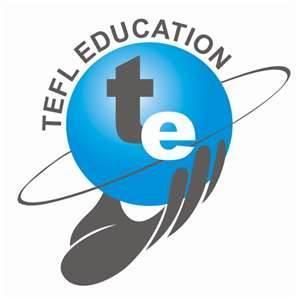Here is a list of commonly used TEFL acronyms compiled from
ESL Base, iteslj, Gone2Korea,
Teaching ESL to Adults, and
TEFL.net.

- 5W's = Who, What, Where, When and Why
- 4 Skills = Reading, Writing, Listening, Speaking
- ABD = All But Dissertation (meaning you've done the coursework for a PhD or EdD)
- ACTFL = American Council on the Teaching of Foreign Languages (USA)
- ADOS = Assistant Director of Studies
- AOP = Academic Oral Presentations
- APA = American Psychological Association
- ARELS = Association of Recognised English Language Services
- ASD: Autism Spectrum Disorder
- BASELT = British Association of State English Language Teaching
- BE = Bilingual Education / Business English
- BEC = Business English Certificate
- BC = British Council
- BULATS = Business Language Testing Service
- CAE = Certificate in Advanced English, Cambridge Advanced English
- CALL = Computer Assisted Language Learning
- CALLA = Cognitive Academic Language Learning Approach
- CALP = Cognitive Academic Language Proficiency
- CBC = Criminal Background Check
- CBI = Content Based Instruction
- CEELT = Cambridge Examination in English for Language Teachers
- CELTA = Certificate in English Language Teaching to Adults
- CELTYL = Certificate in English Language Teaching to Young Learners
- CILT = Centre for Information of Language Teaching and Research
- CLIL = Content and Language Integrated Learning
- CLL = Community Language Learning
- CLT = Communicative Language Teaching
- CRC = Criminal Record Check
- CPE = Cambridge Proficiency Examination
- CTESOL = Certificate in Teaching English to Speakers of Other Languages
- DELTA = Diploma in English Language Training to Adults
- DOS = Director of Studies
- DL = Distance Learning
- DPhil = Doctorate of Philosophy
- DTEFLA = Diploma in the Teaching of English as a Foreign Language
- EAL: English as an Additional Language
- EAP = English for Academic Purposes
- ECIS = European Council of International Schools
- EdD = Doctor in Education
- EFL = English as a Foreign Language (Studying English in non-English-speaking countries)
- ELI = English Language Instructor
- ELL = English Language Learner
- ELICOS = English Language Intensive Courses for Overseas Students
- ELT = English Language Teaching (or sometimes Training)
- EMT = English Mother Tongue
- EP = Transitional English Proficiency
- EPIK = English Programme in Korea
- ESAC = English in Specific Academic Contexts
- ESL = English as a Second Language (Studying English as a non-native speaker in a country where English is spoken.)
- ESOL = English to Speakers of Other Languages (Note: ESL and EFL are
often used interchangeably.)
- ESP = English for Specific Purposes / English for Special Purposes / English Speaking Environment
- EST = English for Science and Technology
- EX: Exam Classes
- FCE = First Certificate in English
- FEP = Fluent English Proficient (or Proficiency)
- FES = Fluent English Speaker
GTM = Grammar Translation Method
- FLT = Foreign Language Teaching
- GEPIK = Gyeonggi-do English Programme in Korea
- GET = Guest English Teacher
- IATEFL = International Association of Teachers of English as a Foreign Language (UK)
- ICELT = In-service Certificate in English Language Teaching
- IDLTM = International Diploma in Language Teaching Management
- IELTS = International English Language Testing System
- IEP = Intensive English program
- IH = International House
- IPA = International Phonetic Alphabet (or Association)
- KET = Key English Test
- L1 = "Language 1" = the student's native (primary or first acquired) language.
- L2 = "Language 2" = the language being learned or studied
- LDT = Language Development Training
- LEP = Limited English Proficiency (or Proficient)
- LES = Limited English Speaker
- LL = Language Lab
- LMS = Language Minority Student
- LS = Language Support
- LSA = Language Skills Assignment
- LSAC = Listening and Speaking in Academic Contexts
- LSP = Languages for Special Purposes
- MLA = Modern Language Association
- MLAT = The Modern Language Aptitude Test
- MOE = Ministry of Education, Metropolitan Office of Education
- MONO: Monolingual
- MULT = Multilingual
- NCTE = National Council of Teachers of English (United States of America)
- NEP = Non English Proficient (or Proficiency)
- NESE = Non-English Speaking Environment
- NET = Native English Teacher
- NNS = Non-Native Speaker
- NS = Native Speaker
- OH = Office hours
- OND = On Demand
- PET = Prelimiary English Test
- PGCE = Post Graduate Certificate in Education
- PhD = Doctor in Philosophy
- POE = Provincial Office of Education
- PR = Permanent Residency
- QTS = Qualified Teaching Status
- RSA = Royal Society for the encouragement of Arts, Manufactures, and Commerce
- RWAC = Reading and Writing in Academic Contexts
- SLA = Second Language Acquisition
- SMOE = Seoul Metropolitan Office of Education
- SR = Special Requirements
- STT = Student Talking Time
Time
- TALK = Teach and Learn Korea
- TBA = To Be Announced
- TBC = To Be Confirmed
- TEFL = Teaching English as a Foreign Language
- TESL = Teaching English as a Second Language
- TESOL
= Teaching English to Speakers of Other Languages, Teachers of English to Speakers of Other Languages,
Inc.
- TKT = Teaching Knowledge Test
- TOEFL = Test of English as a Foreign Language
- TOEIC = Test of English for International Communication
- TL = Target Language
- TPR = Total Physical Response
- TSE = Test of Spoken English
- TTT = Teacher Talking Time
- TWE = Test of Written English
- UCLES = University of Cambridge Local Examinations Syndicate
- VESL = Vocational English as a Second Language
- VYL = Very Young Learners
- YL = Young Learners
- YLE = Young Learners English

